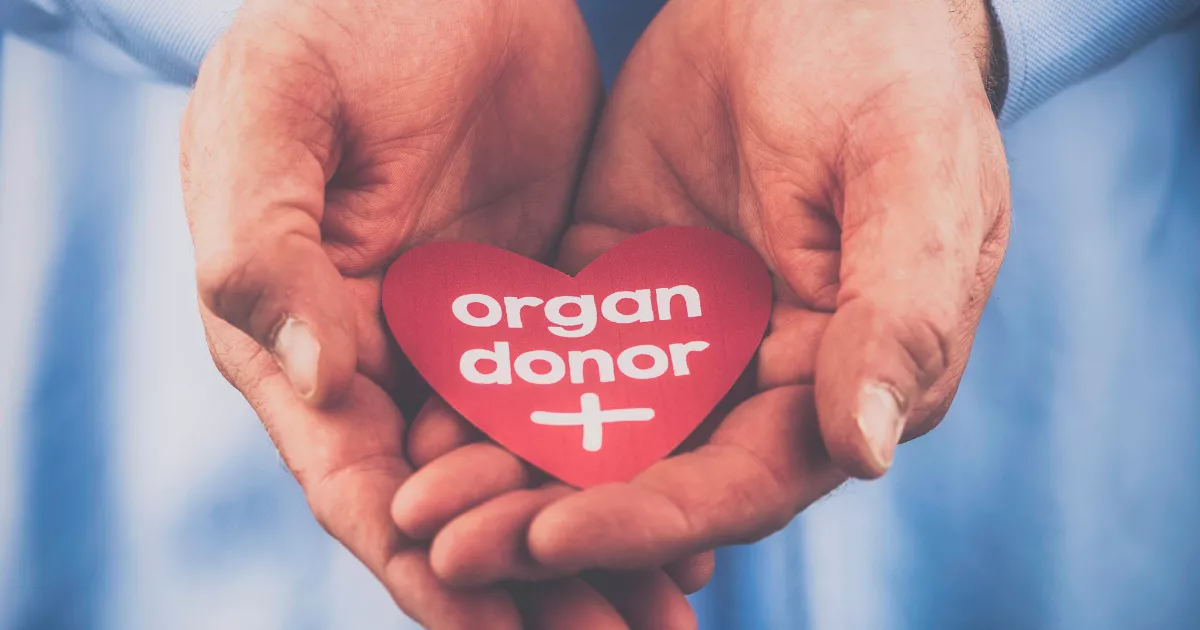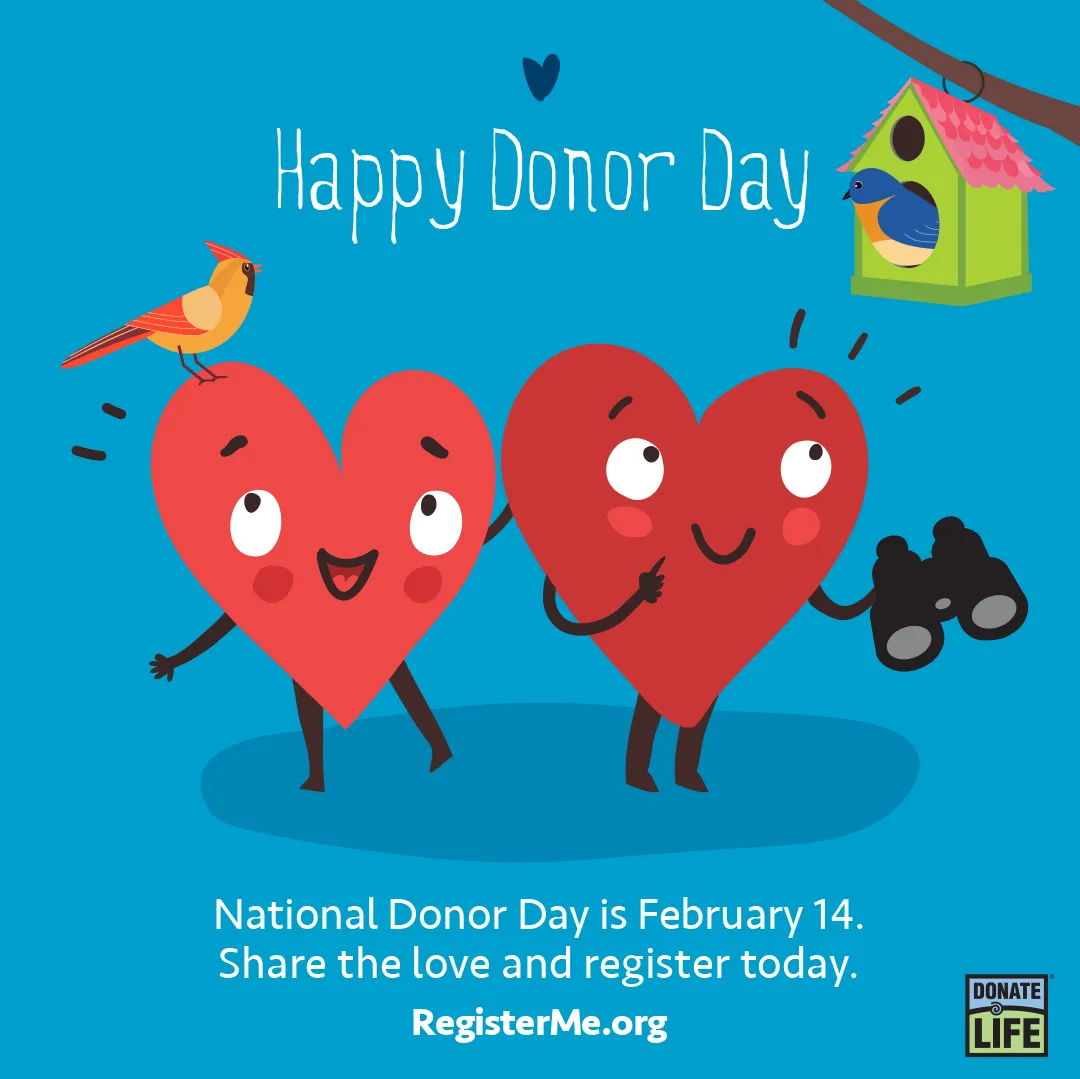
National Donor Day: Honoring the Gift of Life
Every year on February 14th, while many celebrate love through chocolates and flowers, others focus on a deeper kind of love—the selfless act of saving a life. National Donor Day is dedicated to raising awareness about organ, tissue, and blood donation, as well as celebrating the heroes who make these lifesaving contributions. Learn about the history of National Donor Day, the critical need for donations, and ways to get involved in spreading awareness and saving lives.
The History of National Donor Day
National Donor Day was established in 1998 by the Saturn Corporation and its partner, the United Auto Workers Union. With support from the U.S. Department of Health and Human Services, the day aimed to educate the public about the life-saving importance of organ, eye, tissue, marrow, platelet, and blood donations. The choice of Valentine’s Day was symbolic, highlighting the ultimate act of love: giving someone a second chance at life.
Since its inception, National Donor Day has grown into a nationwide movement, with hospitals, nonprofits, and communities hosting events to honor donors and encourage others to sign up as potential donors.
Why Organ and Tissue Donation Matters
The Need for Organ Donors
The numbers surrounding organ donation are staggering. According to the Organ Procurement and Transplantation Network (OPTN):
- Over 100,000 people in the U.S. are currently waiting for a life-saving organ transplant.
- Every 9 minutes, another person is added to the national transplant waiting list.
- On average, 17 people die each day waiting for an organ that doesn’t come in time.
These statistics underscore the urgent need for more registered donors. A single organ donor can save up to 8 lives and improve the quality of life for many others through tissue and cornea donation.
The Power of Tissue Donation
Tissue donation goes beyond saving lives—it enhances them. Donated tissues like skin, bone, and tendons can help burn victims heal, restore mobility to those with injuries, and improve vision through corneal transplants. One donor can provide tissue to help more than 75 people.
The Impact of Blood Donation
Blood donation is another critical aspect of National Donor Day. Every 2 seconds, someone in the U.S. needs blood, whether due to surgery, trauma, or chronic illness. Despite the consistent demand, only about 3% of eligible Americans donate blood annually. By giving just one pint, a donor can save up to three lives.
The Human Side of Donation: Real Stories
Behind the statistics are countless stories of lives saved and transformed. For example:
- Daniela, who had no functioning kidneys when she was born. She had her first kidney transplant when she was 3 years old. At 15, her body started rejecting the transplanted kidney. She underwent dialysis for 12 years until a new kidney became available.
- Charlotte, who wasn’t a donor match for her mom, but who donated a kidney anyway to an anonymous recipient, because she could.
- Heather, who at 19 received two new lungs and a new liver during a 15-hour surgery that involved 50 healthcare professionals. She was able to finish school, and graduated college with the highest GPA in her major.
These stories highlight the profound impact donors have on individuals, families, and communities.
How You Can Get Involved
National Donor Day is not just about recognition—it’s a call to action. Here are several ways you can participate and make a difference:
Register as an Organ Donor
- Signing up to be an organ donor is quick and easy. You can register online through organizations like Donate Life America or check the option when renewing your driver’s license.
- Make sure to inform your family about your decision, as they may be consulted during the donation process.
Donate Blood or Platelets
- Visit your local blood bank or organizations like the American Red Cross to schedule a donation. Blood and platelets are always in high demand, and your contribution can save lives immediately.
Spread Awareness
- Use your social media platforms to share information about National Donor Day and the importance of donation. Personal stories, statistics, and links to donor registries can inspire others to act.
- Participate in local awareness events or host one in your community.
Volunteer or Fundraise
- Many nonprofit organizations dedicated to organ and tissue donation rely on volunteers and donations. Consider volunteering your time or starting a fundraiser to support their efforts.
Celebrate Donors and Recipients
- Take time on National Donor Day to honor the donors, recipients, and their families for their incredible gifts. Whether through a moment of silence, a community gathering, or a heartfelt message, showing gratitude can strengthen the donor community.
Addressing Common Myths About Donation
Despite the life-saving benefits of donation, misconceptions often deter people from registering. Let’s debunk a few common myths:
- Myth: Doctors won’t try as hard to save me if I’m a registered donor.
Fact: Medical professionals are dedicated to saving lives, and only consider organ donation after all life-saving efforts have been exhausted. - Myth: I’m too old or unhealthy to donate.
Fact: There’s no age limit for donation, and medical suitability is determined at the time of death. - Myth: My religion opposes donation.
Fact: Most major religions support organ and tissue donation as an act of compassion and generosity.
By addressing these myths, we can encourage more people to take the important step of registering as donors.
Looking Ahead: A Vision of Hope
National Donor Day is a reminder of the profound impact individuals can have on one another. Each registered donor brings hope to those waiting for a second chance at life. The day also shines a light on the advancements in transplantation and the potential for future breakthroughs.
Imagine a world where no one dies waiting for a transplant. While this vision may seem ambitious, it’s achievable if more people commit to becoming donors and supporting this vital cause.
The Greatest Gift
On this Valentine’s Day, while celebrating love in its many forms, take a moment to reflect on the selfless act of giving life. Whether by registering as an organ donor, donating blood, or simply spreading awareness, your actions can save lives and offer hope to countless families.
National Donor Day is a celebration of love, sacrifice, and the boundless potential of human generosity. Join the movement and be a part of this life-saving mission. Together, we can create a brighter, healthier future for all.


